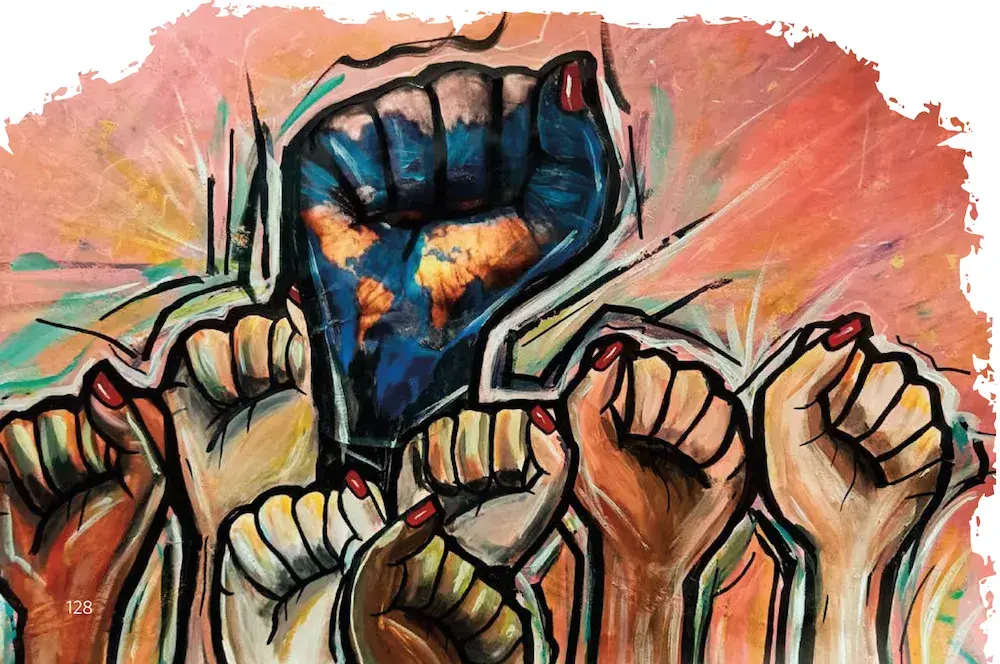In a quest to contribute towards its five-year programme, UNFPA Lesotho acquainted its Implementing Partners with the 7th Country Programme of Assistance to the Kingdom of Lesotho (2019-2023).
The 7th CP will attempt to address the main challenges facing the country. These include a high maternal mortality rate (618 deaths per 100,000 live births, according to the 2016 Census), high levels of poverty (56 per cent) and income inequality (53 per cent), high HIV prevalence rate (25 per cent), high inequality and inequity in health service delivery, high unemployment rate (25 per cent) and high rate of gender-based violence.
The focus of the CP will be on increasing access to high quality, youth-friendly, integrated sexual and reproductive health services and rights; preventing maternal mortality; reducing new HIV infections; and eliminating gender-based violence and harmful practices.
During the week-long retreat, progress made in 2018 was assessed and information for implementation of the 2019 annual work plans and budgets was provided. The Implementing Partners – consisting of line ministries and civil society organizations – expressed their gratitude to UNFPA for equipping them with knowledge that would increase their competency and understanding on the work of UNFPA and its implementing modalities. The partners promised better and improved compliance with UNFPA’s policies and procedures.
Rannyaliseng Maanela, Senior Gender Officer and Ministry of Gender and Youth, Sport and Recreation, said it was interesting to know UNFPA’s policies regarding its support to Implementing Partners.
“This was my first attendance and it was an eye opener. Following the meeting, I have seen there are non-governmental organizations that need more of our support as we as a ministry are mandated to support and coordinate others, particularly since they do a lot, going out to villages and communities.”
“I wish there could be frequent interactions to share information and for us to assist each other. I liked the exposure to utilization of funds, especially the different implementing modalities. I am now going to work closely with our finance department on implementation of our activities,” he said.
On behalf of Lesotho Planned Parenthood Association (LPPA), Tlali Matela, Programme Officer for Information, Education and Communication, said the workshop was important as it introduced them to the Global Programming System (GPS), “which we have realized to be time-saving, making communication move faster and thereby improving efficiency.”
“As LPPA, we had a one-year gap with UNFPA so the workshop has been able to bring us on board as we learnt about the working modalities and what is expected of us. We were introduced to UNFPA policies, which we need to adhere to.”
‘Matsepang Mosae, Curriculum Specialist for the National Curriculum Development Centre, emphasized the need for frequent meetings not only during planning but throughout the year to synergize, help each other and review programmes.
“The spot checks will keep us on our toes and help us keep things in order. Based on the knowledge we gained on the funding modalities, I will now be able to manage the funds. With GPS, I have learnt we will perform our work faster, as submission will only take the click of a button.
Lineo ‘Malesaoana Molapo, from the Ministry of Education and Training, thanked UNFPA for trusting them to handle funds for the benefit of the country. “We gained knowledge on how we can handle the funds and report professionally, therefore we promise to ensure efficiency and effectiveness. We hope that, based on our partnership with UNFPA, we will be able to improve our country for the better.”
Relebohile Ramatelile, an accountant for the Ministry of Health, said that following the training, she could speak comfortably about sexual and reproductive health and rights and gender, even though her main focus was on finances. She liked mostly the E-face form, “I understood it perfectly and I just want to practice it on my own.”




